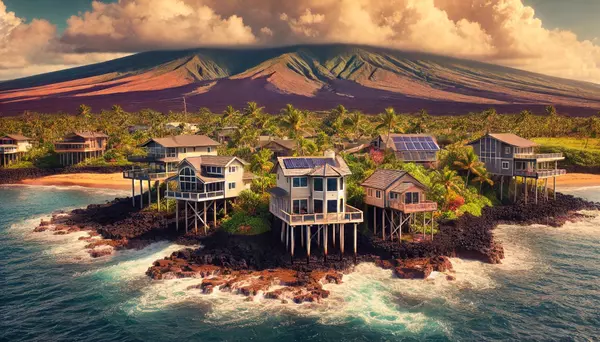Navigating Financing Options for Raw Land Purchases on the Big Island of Hawaii
If you've been eyeing a piece of raw land on the Big Island of Hawaii but find yourself short on the funds to make the entire purchase outright, you've come to the right place. This guide will help you better understand the ins and outs of land financing.
Challenges of Financing Raw Land
Purchasing raw land is a unique financial endeavor, one that differs significantly from securing a traditional mortgage. The hard truth is that raw land doesn't provide the same level of collateral as a house, making it a less secure investment for lenders. This translates to fewer financing options and usually involves higher down payments and interest rates, often coupled with shorter loan terms.
-
High Down Payments and Interest Rates
Lenders typically demand at least a 30 to 40 percent down payment of the purchase price. Due to the perceived high risk involved in land loans, interest rates are also generally higher. -
Short Loan Terms
With land loans, expect terms of just two to three years, featuring interest-only payments. At the term's end, options include paying off the loan or refinancing it with a construction loan if building plans are in your future. -
Credit and Zoning Requirements
Strong credit is a must, with lenders expecting scores around 720 or higher, plus proof of stable income. Additionally, Hawaii's unique zoning laws, such as agricultural zoning, can further complicate financing efforts.
Potential Financing Options
Despite the challenges, several viable financing options exist for raw land purchases on the Big Island.
Local Credit Unions and Banks
Institutions like Big Island Federal Credit Union and First Hawaiian Bank may offer vacant land loans up to 90% of appraised value, often with interest-only payments. These loans can sometimes convert into construction loans, offering future flexibility.
Agricultural Loans
If purchasing agricultural property, consider lenders like American Ag Credit. They provide loans with terms reminiscent of typical mortgages but require the land to be used for actual farming activities.
Construction Loans
Planning to build right away? A construction loan might suit your needs. These loans involve interest-only payments during construction and eventually convert into traditional mortgages upon project completion. However, detailed plans, permits, and a licensed contractor are necessary, adding complexity.
Seller Financing
Occasionally, sellers offer to finance the purchase themselves. While this can be an option, expect substantial down payments, higher interest rates, and shorter loan terms.
Creative Financing
My special term, "creative financing," includes options like a home equity line of credit from property you already own, borrowing from friends or family, or drawing from retirement accounts to become a cash buyer.
Conclusion
Before diving into the financing process, consider your future plans for the land, whether immediate construction, future development, or another purpose. It's crucial to choose a financing method that aligns with your overall goals. While securing land in Hawaii presents unique challenges, it's certainly achievable with preparation and professional guidance.
Whether you're opting for a local credit union loan, a construction loan, or exploring creative financing avenues, a suitable solution can likely be found. Remember, always conduct thorough research and consult with licensed professionals before making major financial decisions.
If you have any questions about financing raw land on the Big Island of Hawaii, feel free to reach out to our team. Aloha!
Categories
Recent Posts










